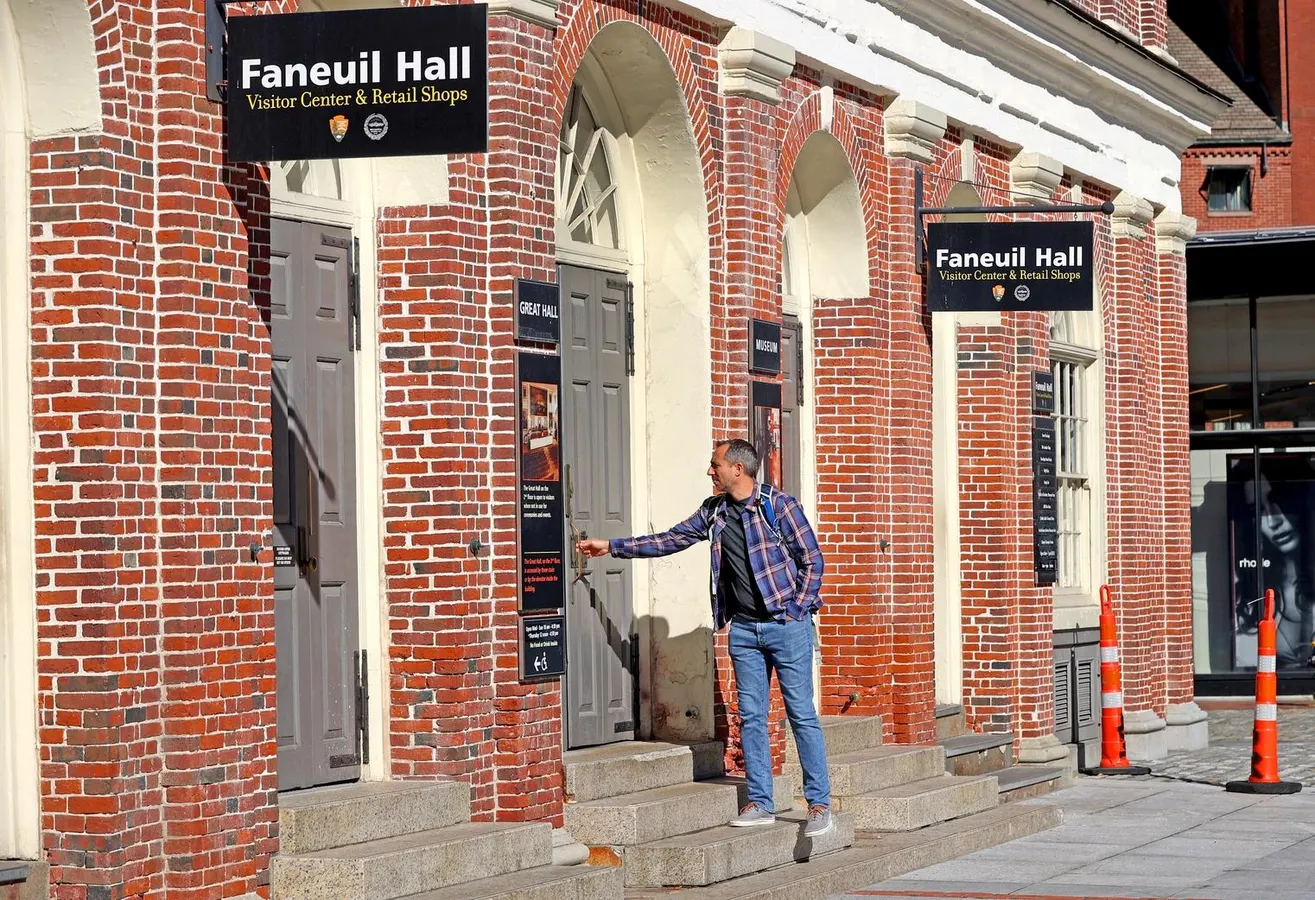By Contributor,David L. Ryan,Rhett Buttle
Copyright forbes

Boston, MA – October 1: The Visitor Center at Faneuil Hall is closed on October 1, 2025 due to the ongoing government shutdown. (Photo by David L. Ryan/The Boston Globe via Getty Images)
Boston Globe via Getty Images
At 12:01 AM ET on October 1, the federal government shut down after Republicans and Democrats failed to reach an agreement on the Continuing Resolution (CR) to keep it up and running. One can debate the merits of each party’s argument and which one is to blame, but if you have two people over to your house and they get into a fight, ransack it, and leave you to clean up the mess, what’s the difference? That is a question businesses across America may soon find themselves asking.
The bottom line is that government shutdowns are bad for the economy and businesses of all sizes. Sadly, the smallest businesses are the ones that have the potential to be hit the hardest. Here is how that can happen.
1. More Expensive Small Business Loans
The economic instability in the United States has already resulted in the lead credit rating agencies taking action. For example, Moody’s, one of the “big three” credit rating firms in the U.S., downgraded the country’s rating from AAA to Aa1 earlier this year. It is a safe bet that this week’s shutdown will not help matters and subsequent fallouts could further lower the country’s credit rating, driving up interest rates for all Americans. Small business loans could become costlier as private lenders are forced to increase their interest rates.
2. Halted SBA Loans
Even Small Business Administration (SBA)-guaranteed loans, which are often lower cost and more accessible but still reflective of market conditions, could also become more expensive. However, certain SBA loans simply are not going to be available because the agency has furloughed 23% of its staff. Of note, the SBA will not be approving new 7(a) loans, 504 loans, and microloans, nor will it be servicing existing ones.
3. Higher Credit Card Interest Rates
Many small business owners use their personal credit cards to cover business expenses and manage debt. As with loan rates, small business credit card and personal credit card interest rates may increase, limiting the amount of capital small business owners have to work with and potentially driving them into more debt. Just like with loans and credit cards, credit markets could also be constricted and U.S. banks would prioritize lending to businesses where they have pre-existing relationships, which are more likely to be larger ones than small ones. Small businesses, especially unbanked ones and those in underserved communities, would be at a severe disadvantage when they have the least financial cushion.
MORE FOR YOU
4. Disrupted Government Services
While the shutdown is a day old, the Administration has indicated that it will have to continue to scale back programs the longer it lasts. It is uncertain what will be impacted, but things like closed national parks, a lack of ability to speak to a live person about Social Security and Medicare benefits, and delayed travel because of Federal Aviation Administration disruptions could reverberate on Mains Streets across the country.
5. A Weakening Economy
Regardless of how you think the federal government should spend its money, it is part of our country’s economy and shutting it down will likely cause a butterfly effect. Goldman Sachs estimates that a government shutdown would directly reduce GDP growth by 0.2% per week once the private sector begins to the full effects. In a letter sent on September 30, to Senators Joni Ernst [R-IA], Lindsey Graham [R-SC], and Jeff Merkley [D-OR], Congressional Budget Office (CBO) Director Phillip Swagel wrote: “The effects of a government shutdown on business activity are uncertain, and their magnitude would depend on the duration of a shutdown and on decisions made by the Administration. CBO expects that if a government shutdown persisted for several weeks, some private-sector entities would never recover all of the income they lost as a result of the suspension of federal activity.”
A stable democracy is one of the cornerstones to a healthy economy, but that does not just mean holding free and fair elections. It also means having a government that is funded regularly without drama every three to six months over it potentially shutting down. The more this happens and the longer this particular shutdown lasts, the worse the impact on business is going to be.
Editorial StandardsReprints & Permissions



